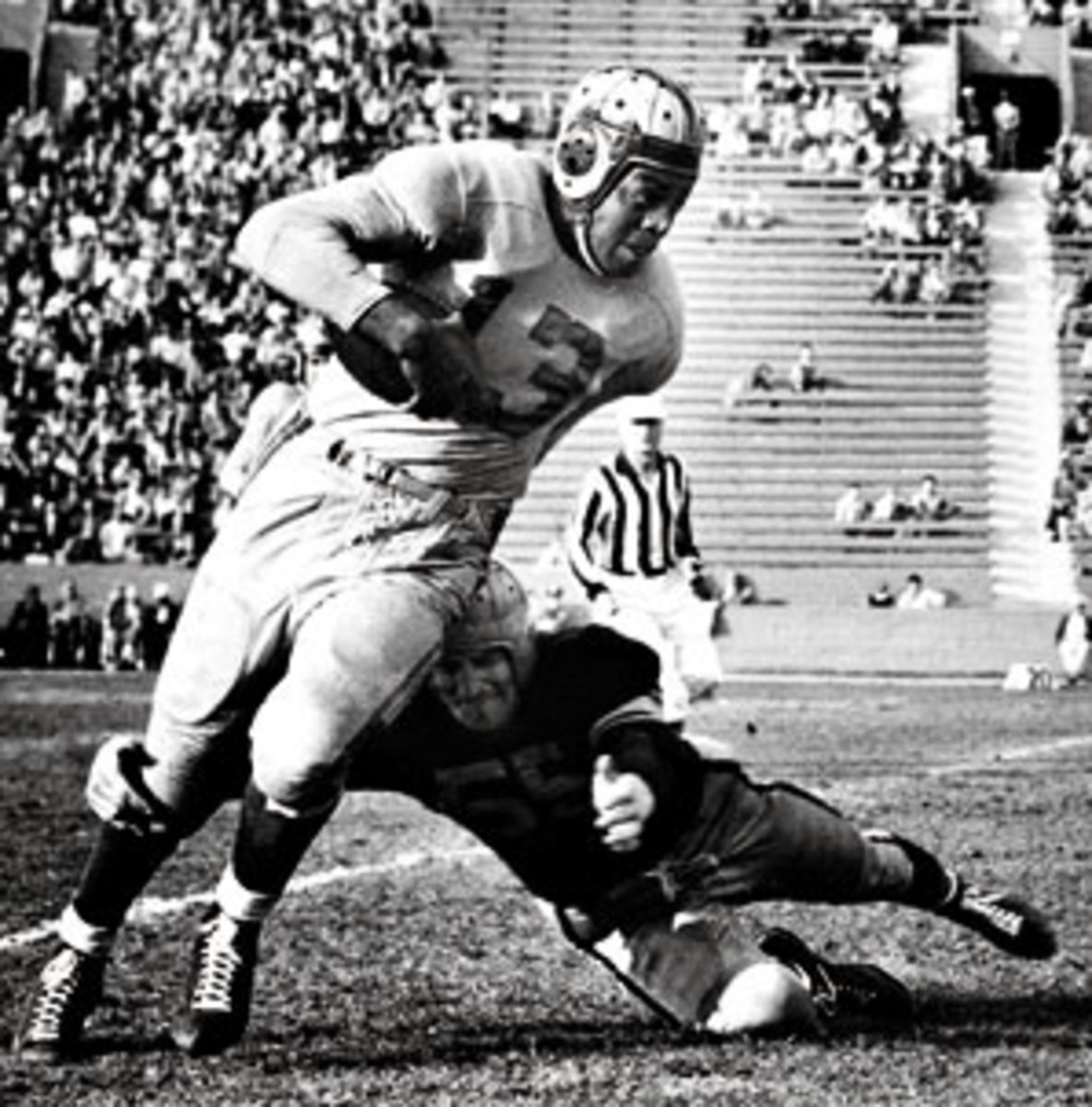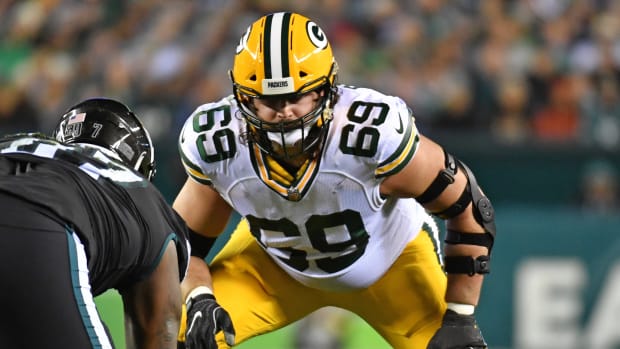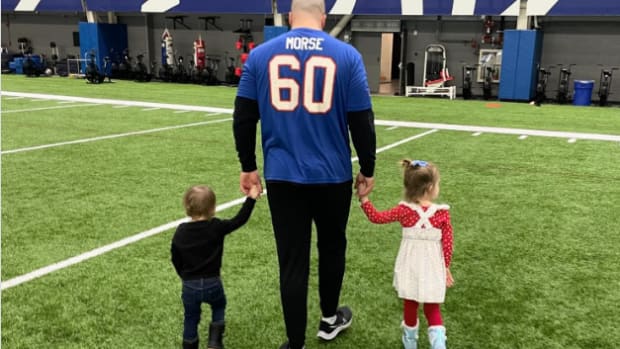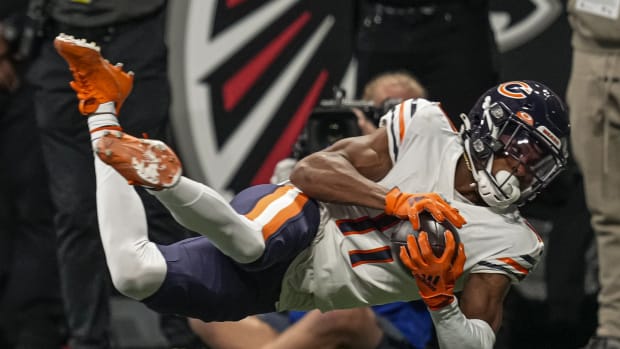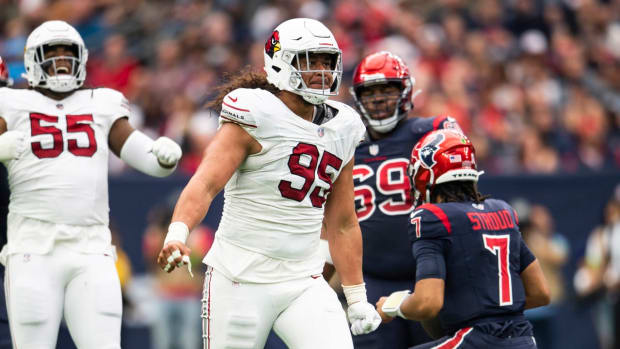Three pioneers deserve to be in the Pro Football Hall of Fame
I've just come up from a months-long burrowing through the tunnels and warrens of pro football history. The result can be found in this week's SI: a piece that explores how the NFL, which was integrated upon its founding, came to bar black players in the '30s and only reluctantly reintegrated after World War II.
I emerged blinking in the sunlight, rubbing my eyes, and determined to fire off this message to the good folks in Canton.
Three men deserve enshrinement in the Pro Football Hall of Fame -- as a player in at least one case, as a contributor in all three.
The easiest argument to be made is on behalf of UCLA's Kenny Washington. Acclaimed as the best college player of 1939 in a vote of the men who faced him, Washington nonetheless went undrafted and unsigned by the NFL because of the owners' "gentlemen's agreement." Thus through the early '40s he played four seasons in the Pacific Coast Football League, which he dominated, even as he suffered several knee injuries. He passed, ran and commanded the defensive secondary. By the end of his minor league career, mostly with the Hollywood Bears, Washington had taken on placekicking duties too -- kicking lefty, on account of those knee injuries' ruling out use of his right leg.
When the Rams finally signed him in 1946, Washington was well past his prime, yet he turned in three creditable NFL seasons, including a 1947 campaign in which his performance -- he led the league in total yardage, average yards per carry (7.4) and the longest run from scrimmage (92 yards) -- hinted at what he could have done if only he hadn't been cheated of six years. Upon Washington's death in 1971, former Rams teammate Bob Waterfield said, "If he had come into the NFL directly from UCLA, he would have been, in my opinion, the best the NFL had ever seen."
It's the Pro Football, not NFL, Hall of Fame, so Washington deserves all credit for those minor league seasons on the West Coast. So does Woody Strode, who as a Hollywood Bear caught many of the passes that Washington threw. The Rams signed Strode, a teammate at UCLA, to serve as Washington's roommate on the road, and the club released him after a season because, Strode said before his death in 1994, it objected to his interracial marriage to a Hawaiian princess. So he decamped to Canada, where he led the Calgary Stampeders to a Grey Cup -- more non-NFL pro-football cred. Strode's career may not reach the threshold for induction as a player, but he deserves a spot in the Hall for his role as a trailblazer.
The most obscure and colorful of the three was a black sportswriter named Halley Harding, who wrote for the Los Angeles Tribune. He and fellow African-American journalists doubled as activists. They led pickets against baseball's all-white Los Angeles Angels of the Pacific Coast League; one day Harding marched up to Oakland Oaks manager Johnny Vergez, who had threatened to quit rather than grant a tryout to a black ballplayer, and challenged him to a fight.
But he had a diplomatic, inspirational side too. When the Rams, new in town after a move from Cleveland, appealed to the Los Angeles Memorial Coliseum Commission for a lease, Harding showed up at the hearing to deliver a pointed, moving and ultimately persuasive speech. Black tax dollars helped build and maintain the Coliseum, Harding argued; its tenants should not be allowed to discriminate. (No transcript of Harding's speech has survived, but Strode's son Kalai has imagined the moment and posted on YouTube, over a montage of images of pro football's black pioneers, an actor's rendition of what Harding might have said that day.) In an early example of how public accommodations could serve as staging grounds for successful civil rights activism, the Rams signed Washington two months later.
But Harding wasn't through. The Los Angeles Dons of the rival All-American Football Conference were also new to Southern California, and they got a lease from the Coliseum Commission too, even though the Dons had failed even to grant a black player a tryout. So Harding made them a target. He used his column to ridicule the Dons for failing to include among their 70 signees two of Washington and Strode's black PCFL teammates: "Let's see, what were their names now? Oh, yeah, two unknowns around here: Big Chuck Anderson and lanky Ezzerett [sic] Anderson, whom the Dons could well use but don't know about, they say. Fact is, they could use this pair like Gandhi could use a safety pin."
After the Dons drew only 18,000 to their Coliseum opener, Harding crowed: "It isn't any guess at all why the suntanned tenth of the body politic didn't show ... The Dons have been singularly stubborn about their prejudice against non-Caucasian players."
Years later Pittsburgh Courier West Coast bureau chief Herman Hill recalled for Ebony how the crusade ended: "Halley chased [Dons] officials all of one day. They actually were hiding in the Biltmore Hotel [which banned blacks at the time]. They finally came out and agreed to stop this racial foolishness."
By the following season the Rams had seamlessly integrated Washington and Strode, and future Hall of Famers Marion Motley and Bill Willis had debuted with the AAFC's Cleveland Browns. John Brown, one of three blacks to play for the Dons the following season, told author Andy Piascik for his new book Gridiron Gauntlet that the Dons invited some 15 black players to their training camp that summer. All credit to Harding and his black sportswriter colleagues, many of whom passed along to the Dons leads on where to find the best African-American talent.
The NFL's decision to resegregate an integrated league was driven by men with some of the most storied names in the game.
Historian Gretchen Atwood -- her forthcoming book The Lost Championship Season is a study of pro football's integration and its context in two affected cities, Los Angeles and Cleveland -- steered me to a piece written in 1945 by Don Deleighbur of the Baltimore Afro-American. It points out that, at the 1920 meeting at which today's NFL was first organized, Chicago owner George Halas threatened not to schedule the Akron Pros so long as the Pros' black star, Fritz Pollard, suited up.
In 1926, when the Canton Bulldogs visited the Polo Grounds to take on the New York Giants, and Giants players refused to share the field with Canton's black running back, Sol Butler, owner Tim Mara stood with his players, forcing Butler to resolve the impasse by agreeing to sit the game out.
Then there's George Preston Marshall, who made the lily-whiteness of his Redskins a point of pride from the time he became their majority owner in 1933 until forced by the Kennedy Administration to desegregate in 1962 -- by which time Jackie Robinson had not only completed his own trailblazing career, but had also been inducted into the Baseball Hall of Fame.
Of course Halas, Mara and Marshall are all enshrined in Canton.
It has been slow, but change has finally come to the NFL. The Rooney family, longtime stewards of the Pittsburgh Steelers and at least an acquiescer to the bigotry of the '30s and '40s, can point with justifiable pride to its championing of the Rooney Rule, which obliges NFL teams with a head coaching or senior football operations vacancy to at least interview a minority candidate.
Washington, Strode and Harding were Hall of Fame-quality contributors, and induction for them would constitute long-deserved recognition. At the same time the Hall could provide for many of the NFL's founding families, whose escutcheons are stained by those 12 shameful seasons, a kind of indirect, belated atonement.
































